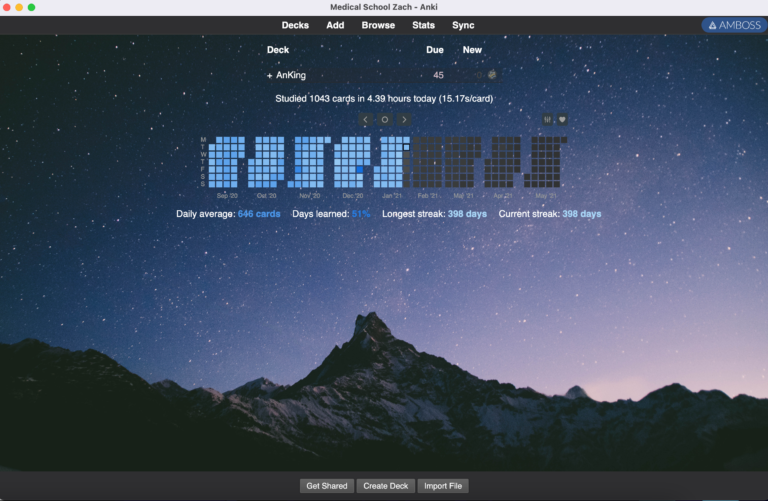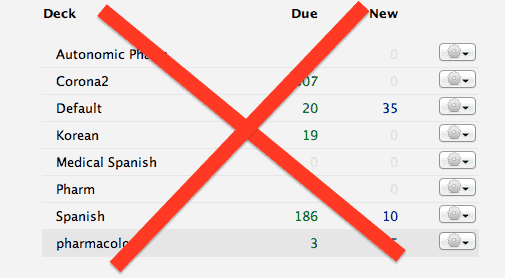
Interview with a Memory Expert: 2x USA Memory Champion Ron WhiteĢ015 Taiwan Memory Championship Recap (via Memory-Sports.Attention, future doctors! Are you ready to optimize your Anki experience for medical school? Today, we're diving deep into the world of Anki settings to help you find the perfect balance for your study sessions. Interview with a Memory Expert: 's Florian Dellé January Recap: New Videos, Studying, and Upcoming Memory Competitionsįull 2015 World Memory Championship Recap Magnetic Memory Method Podcast with Anthony Metivier Interview for Randy Lynn's Education Blog Interview with a Memory Expert: Memory Athlete Brad Zupp Memory Feature in the London Times Educational Supplement

Interview with a Memory Expert: Memory Athlete Johannes Zhou Interview with a Memory Expert: Memory Athletes Annalena and Christian Schäfer Mullen Memory Feature in the Clarion Ledger Washington Post Article & Let's Talk Jackson Podcast Interview with a Memory Expert: 2x World Memory Champion Wang FengĢ016 Memoriad (World Mental Olympics) RecapĢ016 Extreme Memory Tournament & US Open Recap Hours Cards Timelapse: Training for the 2015 WMC My Episode of Superhuman Airs Tomorrow Night!įlash Profile with Chinese Memory Athlete Su Zehe New Video Series: Memory Training for Dogs Memory in a Week: 5 Memory-Themed Podcast Episodes for Earbuds Podcast Collective Our Memory Palace Featured in Southern Living For example, each of the x cards about Epstein-Barr virus (EBV) will contain all mnemonics relating to EBV.Īlthough it doesn't always happen, I do my best to complete all high-yield review cards each day, even those from older test blocks.


Now, my descriptions often look as simple as " IMAGE." I also tend to fill the Mnemonic field with all mnemonics relating to the relevant subtopic. I used to write long descriptions of my stories, but I found that doing so took too much time and was largely irrelevant after I'd spent some time with the material. For instance, " EINSTEIN slides into APPLE." I capitalize things that actually correspond to information, sometimes writing in the association if it's not clear for instance, " EINSTEIN=epstein-barr-virus knocks over ROTTEN egg." I keep the language as concise as possible. In my Mnemonic field, I'll write something like this: IMAGE1 hits IMAGE2. I don't generally reference palaces or anything other than the actual material in the first three fields. Four fields: Front (the question), Back (the answer), Big Picture (additional notes to help strengthen conceptual understanding and see the larger picture), and Mnemonic (usually with a description of images in a memory palace). For the cards themselves, I almost exclusively use a modified "Basic" format. This gives me a way to outline the material. Med::Path::Block5::endocrine-pathology::adrenal-cortex::cushing-syndrome). I use hierarchical tags for everything (e.g. My Anki is broken into three parent decks: Medicine, Languages, and Memory Sports, each with a few subdecks (e.g. The basic idea is that the spaced repetition allows you to transfer knowledge to long-term memory in the most efficient way possible.* I take just about all of my notes for medical school using Anki.

#MED SCHOOL ANKI SETTINGS SOFTWARE#
Anki refers to a free, flashcard-based spaced repetition software available at.


 0 kommentar(er)
0 kommentar(er)
